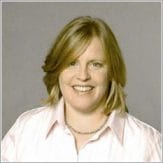Things are still alive and well on the West Coast, but I’m going to suspend my update of all things S.F. until at least a few days from now, in part because I’m about to disappear into the Poconos where I hope to emerge successful—the metric here is completion—from a triathlon. Nevertheless, I thought it prudent to repurpose a recent homework assignment for your reading pleasure.
One of my favorite features of the Semester in San Francisco program is our weekly regional seminar, where we host a range of speakers who highlight topics of interest to our cohort. Thus far, we’ve covered mobile growth, entrepreneurship in big tech, an inside look at incubators/accelerators and last week’s topic—how VCs vet and select entrepreneurs for their investments. The official title of the session, according to our syllabus, was “From Great Entrepreneurs Come Great Companies: What We Look For,” which was fitting given our speaker’s prior experience as a successful entrepreneur and her recommendation that founders work with VCs whose partners have had firsthand experience founding companies. For our class, we’re required to submit a couple of reflections on this speaker series, and so without further ado, I give you mine.

Amy Errett, WG ’88
Amy Errett, WG ’88, partner at Maveron LLC [and Wharton Blog Network contributor], rather immediately grabbed my attention when she mentioned that she prefers to invest in first-time entrepreneurs, rather than serial founders. I wasn’t the only one who noticed that this does not seem to be accepted as a best practice for VCs. The other day in Professor Wessels’ class [David Wessel, adjunct assistant professor of finance], we surveyed the room as to whether we would prefer to invest in a company with a successful serial entrepreneur or with an entrepreneur who has industry expertise but no experience starting a company. We nearly unanimously chose the former. Even though I was delighted to hear this sort of optimism about inexperienced but nevertheless passionate founders—because I hope to be in this group someday—I was still somewhat skeptical. I had to wonder if part of this stemmed from a fact that I held onto from our “Managing People at Work” class last year: that one of the best predictors of future job success is previous job performance or some successful completion of a real-life “work task,” as opposed to the behavioral interviews to which we are all so accustomed.
In a way, an entrepreneur’s pitch is like a behavioral interview in that the audience leaves with some notion of the founder’s interests, qualifications and passion but has little sense of what it’s actually like to work with them and what they will achieve.
Even so, I admit to being rather convinced that a green founder has merits over a seasoned one—with a newbie, complacency has no role and absolute hunger and passion prevails—or so I’d hope. There is probably also something to be said for getting scrappy and creative to make things work, which is often necessitated by first-time entrepreneurs pouring every last cent of their previous and current income streams into their venture. Risking that much without any assured outcomes would seem excellent motivate for an incredible work ethic and focus—pretty good qualities if you ask me.
More than causing a stir with this particular point of view, though, Amy’s talk left an impression on me because I was able to actively connect it to so much of what we are learning at Wharton. Amy has three criteria for investing in early stage firms: people, market and product.
Hearing Amy elaborate on why she abides by “people first” and refuses to back anyone she doesn’t believe in, I was reminded of some core principles from our pre-term class on leadership and teamwork, particularly with respect to the importance of culture. Even though entrepreneurs are not direct employees of venture capital firms, cultural fit is nonetheless hugely important. I’m guessing that the average VC firm would not confidently proclaim, “I don’t like to back anyone who hasn’t fallen on their behind,” or that they value founders who are irrationally and blindly optimistic. I certainly didn’t hear those things in conferences and presentations I attended last year.
But there’s a reason that Amy and Maveron care about those attributes: if you fail, you’ve had to deal with adversity and resiliently recover, and if you’re irrationally optimistic, you’re also probably very passionate about your venture. She also highlighted the importance of an entrepreneur evaluating a VC; several hours later that day, Professor Wessels echoed her view that “capital is a commodity” and underscored the importance of understanding the incentive structure and experience of VCs, in addition to term-sheet clauses.
Amy also spoke of “agility, not flexibility,” and while she mentioned this with respect to a founding team’s personal attributes, I found it quite relevant to the needs assessment exercise we just completed for “Development of Web-Based Products and Services,” where we interviewed different types of potential users to understand their key issues and uses of products and services related to those that we are building for our new ventures. I interpreted Amy’s comment to mean that it’s important to keep our eyes and ears open for opportunities to make our product or overall business more effective—but to change on a whim due to popular sentiment or isolated feedback would be a mistake. Maintaining focus around our value proposition and business priorities is important, but there are things that we may learn along the way that cause us to rethink and shift to deliver an ever better need-solution match for customers. I felt this sentiment during our needs assessment, as there were new things I learned about how people view the travel-planning process that led me to think about additional attributes and ways to package our overall product to make it even more effective for our target audience.
Lastly, on the “market” front, it was refreshing to hear that Amy believes that deeply understanding and serving a niche/affinity group trumps getting a small chunk of a bigger pie. I’m aligned with this perspective, particularly as niche strategies allow for a targeted value proposition and customer base. Amy added that “marketing is more than branding, curation and positioning … if you can’t play in user acquisition, retention and engagement, then you’ll never win.”
Having spent the larger part of my summer internship focused on that latter piece, I couldn’t agree more. It’s one thing to have a compelling brand that reels people in, but having good analytics to measure their behaviors and preferences allows for better segmentation and innovation around new products and services, thus a greater lifetime value.
I learned a lot from Amy and appreciated her perspective, which was confident, unpretentious and provocative. She might agree with me when I say that there’s no great algorithm to predict chutzpah, but if you are irrationally optimistic and try to make one and then fall flat on your face, then that experience will in time make you a more appealing candidate to VCs.
Editor’s note: This post first appeared on the Wharton MBA Program’s Student Diarist blog on Sept. 28, 2012. We will continue to feature updates from Jennifer and her classmates, who are the first full-time Wharton MBAs to spend a semester at Wharton | San Francisco.


























